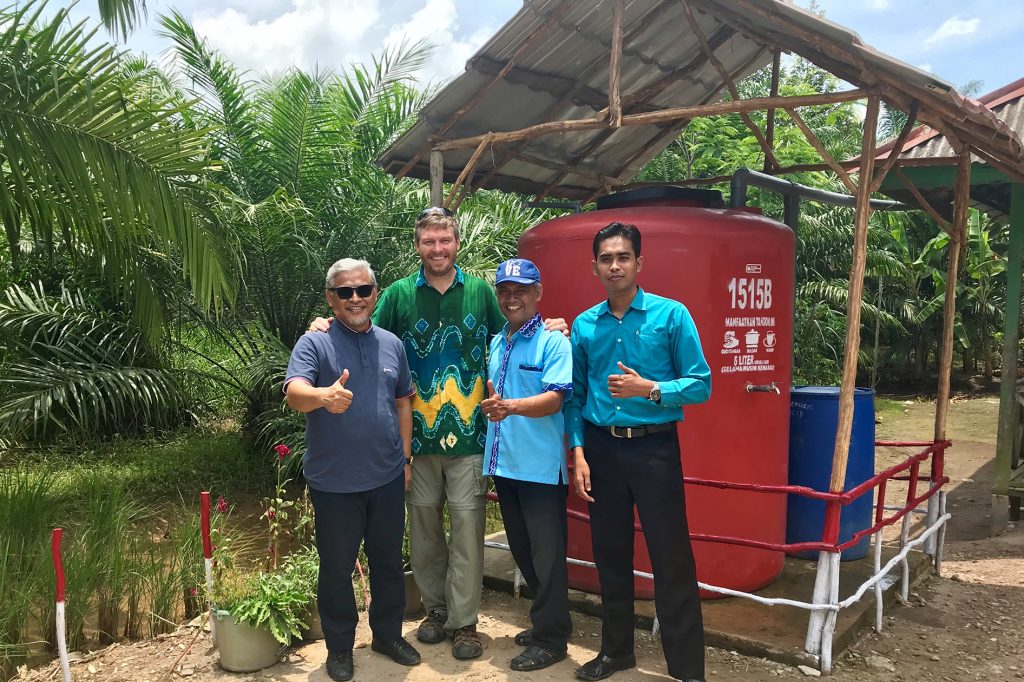
Inspired through their strong Christian faith to love God, in 2011 Bundaberg's Shane Elson moved with his wife and three young children to South Kalimantan in Borneo where millions were struggling to gain access to the basic right of clean drinking water.
His ambition to help the community in Borneo began when he started his career with Bundaberg company Leddy Sergiacomi and Associates as a cadet engineer in 1994.
Shane studied and worked primarily in Bundaberg engineering firms and offices for 15 years.
He said his purpose for building a career in engineering was ultimately for the wider impact he could have on communities and, more specifically, on the lives of individuals.
“So often in the developed world we take for granted basic infrastructure such as roads, drainage, water and sewerage,” Shane said.
“There are billions in the world that are still without access to drinking water or reticulated sewerage systems.”
Leaving family and friends behind in Bundaberg and moving to Borneo in 2011 was an adventure but was not without a mountain of challenges, according to Shane.
“As we faced struggles from sickness and the uncomfortable conditions presented by living in a swamp on the equator, rather than drive us home, it reinforced the reasons why we had moved and our desire to listen and the challenge of creating contextual solutions in conjunction with the local people,” he said.
“We chose this area of Indonesia because very few were prepared to take on the massive task of helping these people due to the cultural and physical environment.
“Local and international organisations that did try often gave up after a few years so we wanted to ensure that whatever we started was sustainable and reproducible by locals.”
Shane builds on passion to help Borneo community access drinking water
Shane said after expected local resistance they decided to establish a non-profit business called Yayasan Kaganangan Banua (YKB).
“We currently employ ten local staff, have a local board who runs the business that’s building simple and effective infrastructure using local materials to provide safe drinking water to many villages,” he said.
“Our business has been built on an annual operating budget of $50,000 in donations, including local operational costs and construction materials.
“Our systems currently provide more than 500,000 litres storage capacity equating to over 2.5 million litres of safe drinking water annually.
“Each year we aim to add at least 80,000 litres in infrastructure to the systems.
“This is in a location where every international aid agency has failed, corruption is real and where drinking water is not considered an actual possibility by the locals.”
Shane admitted this had been a huge feat but said he never felt like giving up on the community because “all life holds God-given intrinsic value regardless of who we are or what we do”.
Living within the community helped Shane to build relationships, but it took five years before a majority of the locals realised he was serious.
He now speaks fluent Indonesian and is well-known by government officials and the locals given he, his wife and children were the first western family to legally register to reside in their city.
This has also led him to being a keynote speaker at Indonesian state and national engineering development conferences, as well as receiving the Queensland and Australian Engineering Technologist of the Year (EA) in 2016 and the International Alumni of the Year (USQ) in 2017.
“Here I was born and bred in Bundaberg, who barely passed English at high school and I had the privilege of working with and influencing the dialogue on infrastructure in regional Indonesia with leaders from villages through to State and Federal leaders,” Shane said.
Through his work, Shane said he was able to help the remote villagers in Borneo who were grateful for the opportunity to have clean water after having to drink and bath in a river that was full of pollutants.
“They now have a reduction in water-borne sicknesses so are able to work more and the children are able to go to school – things we all take for granted” he said.
“The economic, health and social benefits far outweigh our annual operating costs, and with the current systems we have in place, we are saving the overall communities $100,000 annually.”




